-
 Thanh toán đa dạng, linh hoạtChuyển khoản ngân hàng, thanh toán tại nhà...
Thanh toán đa dạng, linh hoạtChuyển khoản ngân hàng, thanh toán tại nhà... -
 Miễn Phí vận chuyển 53 tỉnh thànhMiễn phí vận chuyển đối với đơn hàng trên 1 triệu
Miễn Phí vận chuyển 53 tỉnh thànhMiễn phí vận chuyển đối với đơn hàng trên 1 triệu -
 Yên Tâm mua sắmHoàn tiền trong vòng 7 ngày...
Yên Tâm mua sắmHoàn tiền trong vòng 7 ngày...
How To Eat: All Your Food and Diet Questions Answered: A Food Science Nutrition Weight Loss Book
-

- Mã sản phẩm: 035812882X
- (524 nhận xét)

- Publisher:Harvest; 1st edition (March 3, 2020)
- Language:English
- Hardcover:256 pages
- ISBN-10:035812882X
- ISBN-13:978-0358128823
- Item Weight:13.6 ounces
- Dimensions:5 x 0.91 x 8 inches
- Best Sellers Rank:#74,377 in Books (See Top 100 in Books) #418 in Weight Loss Diets (Books) #625 in Other Diet Books #4,245 in Medical Books (Books)
- Customer Reviews:4.3 out of 5 stars 524Reviews

Mô tả sản phẩm
From the Publisher

Can we define “diet,” please?
The term “diet” has been converted into a pop culture catchphrase. It’s something that you “go on” to lose weight, a short term (non-) “solution.” But “diet” comes from the Latin for (we’re translating loosely here) “lifestyle,” or daily food intake; it’s not a way to eat to lose weight as fast as possible (and gain it back even faster.) It’s how you eat for life. It’s a thing you do to remain healthy. So, you want a good diet, permanently.
Why do so many diets literally ask us to eat in an imbalanced, highly limited way?
Those are not diets for life; they’re ostensibly short-term weight loss diets, though even that’s arguable. Beyond that, they’re simply not good choices: Balance is good, imbalance is bad. Really. Period.
A lot of things not consistent with balance or health can lead to rapid weight loss in the short term — a bout of flu, for instance, or for that matter, cholera! Gimmicky weight loss diets substitute severe restrictions for long-term healthful eating. They work for quick weight loss, but they’re not sustainable. Balance, on the other hand, is a high-level principle that pertains across all considerations of diet and nutrients. For example, you need sodium to live; you just don’t need as much of it as modern, highly processed diets deliver.
Is there a “diet” that leaves all the others in the dust?
It would be truer to say that we know eating patterns that beat out other diets — but as soon as we move in that sensible, defensible direction, all the pixie dust drops out of the equation; it doesn’t sound like magic. Sadly, most people are convinced they want pixie dust, no matter how many times false promises about its magical powers have let them down, and no matter how simple good eating is shown to be. Whenever we’re comparing contemporary diets, from intermittent fasting to Whole30, there are commercial interests attached. But the simple truth is that all “good” diets share the same principles: They focus on foods that are close to nature, minimally processed, and plant predominant — what we call a whole-food, plant-predominant diet.
Is quick weight loss a bad thing? A grapefruit diet, or fasting, or whatever?
If you just go on a short-term diet as so many people do, you’ll lose both fat and muscle. If you then go off the diet and gain weight back, unless you work out like a fiend, you’ll gain back mostly fat. With each of those cycles you shift your body composition more and more toward a higher fat percentage, which is a less metabolically efficient machine. Fat requires fewer calories to maintain its size than muscle does. So essentially, you create a pathway by which you need fewer calories each time to maintain fat and require ever more severe calorie restriction to lose it. In other words: Ouch.
Can I really get all my nutrients and protein from eating just plant foods?
The fact that you may not get all the nutrients you need from a dietary pattern is in no way unique to the vegan diet experience. Almost everyone who works indoors, and wears clothes, gets less than the ideal amount of vitamin D. That said, pure or strict veganism does tend to result in low levels of long-chainomega-3 fats (from so-called fish oils, though there are also plant sources) and vitamin B12. But even if a vegan needs to supplement with B12, so what? Most American diets are deficient in certain nutrients. While you’re at it, you probably ought to supplement omega-3s and vitamin D, too.
- Mua astaxanthin uống có tốt không? Mua ở đâu? 29/10/2018
- Saffron (nhụy hoa nghệ tây) uống như thế nào cho hợp lý? 29/09/2018
- Saffron (nghệ tây) làm đẹp như thế nào? 28/09/2018
- Giải đáp những thắc mắc về viên uống sinh lý Fuji Sumo 14/09/2018
- Công dụng tuyệt vời từ tinh chất tỏi với sức khỏe 12/09/2018
- Mua collagen 82X chính hãng ở đâu? 26/07/2018
- NueGlow mua ở đâu giá chính hãng bao nhiêu? 04/07/2018
- Fucoidan Chính hãng Nhật Bản giá bao nhiêu? 18/05/2018
- Top 5 loại thuốc trị sẹo tốt nhất, hiệu quả với cả sẹo lâu năm 20/03/2018
- Footer chi tiết bài viết 09/03/2018
- Mã vạch không thể phân biệt hàng chính hãng hay hàng giả 10/05/2023
- Thuốc trắng da Ivory Caps chính hãng giá bao nhiêu? Mua ở đâu? 08/12/2022
- Nên thoa kem trắng da body vào lúc nào để đạt hiệu quả cao? 07/12/2022
- Tiêm trắng da toàn thân giá bao nhiêu? Có an toàn không? 06/12/2022
- Top 3 kem dưỡng trắng da được ưa chuộng nhất hiện nay 05/12/2022
- Uống vitamin C có trắng da không? Nên uống như thế nào? 03/12/2022
- [email protected]
- Hotline: 0909977247
- Hotline: 0908897041
- 8h - 17h Từ Thứ 2 - Thứ 7
Đăng ký nhận thông tin qua email để nhận được hàng triệu ưu đãi từ Muathuoctot.com
Tạp chí sức khỏe làm đẹp, Kem chống nắng nào tốt nhất hiện nay Thuoc giam can an toan hiện nay, thuoc collagen, thuoc Dong trung ha thao , thuoc giam can LIC, thuoc shark cartilage thuoc collagen youtheory dau ca omega 3 tot nhat, dong trung ha thao aloha cua my, kem tri seo hieu qua, C ollagen shiseido enriched, và collagen shiseido dạng viên , Collagen de happy ngăn chặn quá trình lão hóa, mua hang tren thuoc virility pills vp-rx tri roi loan cuong duong, vitamin e 400, dieu tri bang thuoc fucoidan, kem chống nhăn vùng mắt, dịch vụ giao hang nhanh nội thành, crest 3d white, fine pure collagen, nên mua collagen shiseido ở đâu, làm sáng mắt, dịch vụ cho thue kho lẻ tại tphcm, thực phẩm tăng cường sinh lý nam, thuoc prenatal bổ sung dinh dưỡng, kem đánh răng crest 3d white, hỗ trợ điều trị tim mạch, thuốc trắng da hiệu quả giúp phục hồi da. thuốc mọc tóc biotin














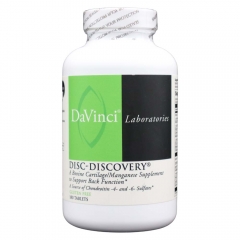

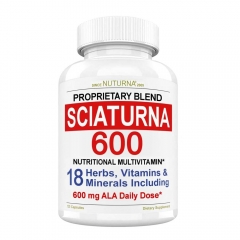
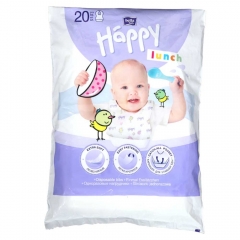
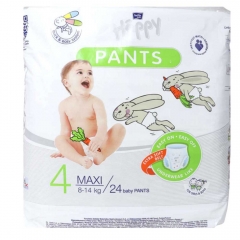
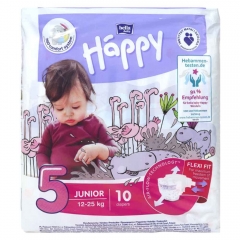



 KHUYẾN MÃI LỚN
KHUYẾN MÃI LỚN Hỗ Trợ Xương Khớp
Hỗ Trợ Xương Khớp Bổ Não & Tăng cường Trí Nhớ
Bổ Não & Tăng cường Trí Nhớ Bổ Sung Collagen & Làm Đẹp
Bổ Sung Collagen & Làm Đẹp Bổ Thận, Mát Gan & Giải Độc
Bổ Thận, Mát Gan & Giải Độc Chăm Sóc Sức khỏe Nam Giới
Chăm Sóc Sức khỏe Nam Giới Chăm Sóc Sức khỏe Nữ Giới
Chăm Sóc Sức khỏe Nữ Giới Chăm sóc Sức khỏe Trẻ Em
Chăm sóc Sức khỏe Trẻ Em Thực Phẩm Giảm Cân, Ăn Kiêng
Thực Phẩm Giảm Cân, Ăn Kiêng Bổ Sung Vitamin & Khoáng Chất
Bổ Sung Vitamin & Khoáng Chất Bổ Tim Mạch, Huyết Áp & Mỡ Máu
Bổ Tim Mạch, Huyết Áp & Mỡ Máu Bổ Mắt & Tăng cường Thị lực
Bổ Mắt & Tăng cường Thị lực Điều Trị Tai Mũi Họng
Điều Trị Tai Mũi Họng Sức Khỏe Hệ Tiêu hóa
Sức Khỏe Hệ Tiêu hóa Chăm Sóc Răng Miệng
Chăm Sóc Răng Miệng Chống Oxy Hóa & Tảo Biển.
Chống Oxy Hóa & Tảo Biển.